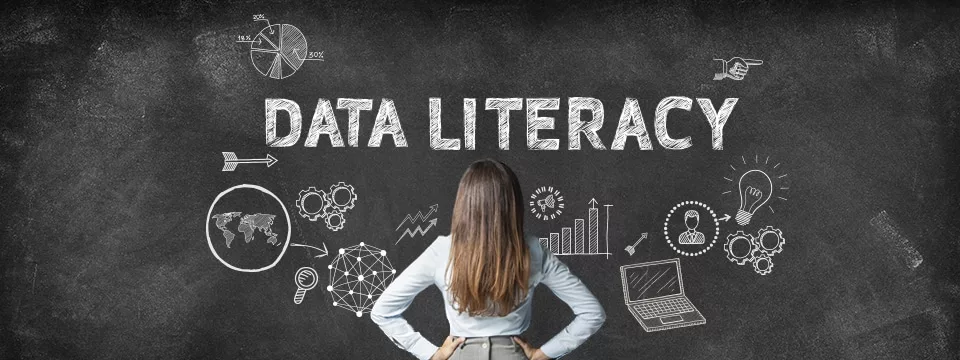Why Future-Proofing Is Essential
The landscape of the workforce is undergoing a seismic shift. Automation, AI, and remote work are transforming not only how we work but also the very nature of work itself. Jobs that were once common in industries like manufacturing and retail are rapidly disappearing, while new careers in fields like AI ethics, data science, and virtual reality are emerging. These changes don’t signal the end of human work, but they do demand a rethinking of how we approach our professional development.
According to the World Economic Forum, 85 million jobs could be displaced by automation by 2025, but 97 million new roles could emerge as industries evolve. This gap underscores the importance of preparing for a future where the ability to adapt and learn is the key to career sustainability.
Key Strategies to Future-Proof Your Career
1. Embrace Lifelong Learning
In a world where new skills can become outdated within a few years, adopting a mindset of lifelong learning is no longer optional—it’s essential. Whether it’s pursuing formal education, taking online courses, or learning through hands-on experience, staying up-to-date with new knowledge and tools is vital. Industries like technology, healthcare, and finance will require continual upskilling to keep pace with emerging trends.
Example: Consider a software developer who learns a new programming language every couple of years or a marketer who masters the latest analytics tools to stay relevant.
2. Develop Critical Thinking and Creativity
While machines excel at repetitive tasks and data analysis, they are still far from replicating human creativity, empathy, and judgment. Careers that require innovative thinking, problem-solving, and human interaction will remain in high demand. Critical thinking and creativity are skills that are not easily automated and will allow professionals to remain relevant even in a world dominated by AI.
Example: A product designer who understands user psychology and creates innovative, human-centered designs will always be more valuable than someone relying solely on data-driven solutions.
3. Adapt to Technological Change
Rather than seeing technology as a threat, successful professionals will view it as an ally. This doesn’t mean becoming a tech expert overnight, but rather developing the ability to use new technologies to improve your work. From mastering basic data analysis tools to understanding AI ethics or using automation to streamline tasks, embracing technology can elevate your career.
Example: A marketing manager who incorporates AI tools for personalized advertising or a teacher who integrates online learning platforms into their classroom can significantly enhance their impact.
4. Cultivate Emotional Intelligence
While AI may analyze data better, it can't replace human connection. Roles that require emotional intelligence (EQ)—such as leadership, customer service, and healthcare—are expected to grow. Building your emotional intelligence by improving your empathy, communication skills, and ability to work within teams will ensure that you can collaborate effectively in any environment.
Example: A healthcare worker who understands the emotional needs of their patients, or a manager who can lead a team with empathy and clear communication, will always be in demand.
5. Build a Strong Professional Network
No matter how much technology advances, human connections will always be valuable. Networking—both online and offline—can help you discover new opportunities, gain insights into industry changes, and connect with people who can help advance your career. A strong network can also provide the support you need to navigate career transitions.
Example: A freelancer who builds a community of clients and collaborators will find it easier to pivot into new projects or industries as opportunities arise.
Industries and Careers Poised for Growth
The job market is evolving rapidly, and some industries are already seeing explosive growth. Here’s a snapshot of careers and sectors that will play a critical role in the future:
-
AI and Machine Learning: Engineers, data scientists, and AI ethicists will be in demand to create and monitor the algorithms that power autonomous systems.
-
Healthcare and Biotechnology: As people live longer, the need for medical professionals, biotechnologists, and eldercare specialists will continue to rise.
-
Renewable Energy: The transition to green energy will create careers in solar, wind, and battery technology, as well as in sustainable construction and urban planning.
-
Cybersecurity: With the increase in digital activity, cybersecurity specialists will be essential in protecting companies from evolving threats.
-
Remote Work Support: As remote work continues, companies will need specialists in virtual collaboration tools, online team building, and digital workspace management.
Example Professions and Skills to Watch
Here are some of the most promising careers that are likely to grow in the future:
-
AI Ethicist: Works to ensure AI systems are built and deployed ethically, addressing concerns about privacy, bias, and fairness.
-
Sustainability Consultant: Helps organizations transition to more sustainable practices, from reducing carbon footprints to integrating circular economy models.
-
Data Privacy Officer: Ensures that organizations comply with data protection regulations and safeguard consumer information.
-
Virtual Reality Designer: Creates immersive VR experiences for gaming, education, healthcare, and more.
-
Robotics Technician: Installs, maintains, and repairs robots used in manufacturing, healthcare, and other industries.
The Future Job Market: A Shift Toward Flexibility and Purpose
As industries change, the way we work will also transform. More flexible work environments, hybrid office models, and greater emphasis on work-life balance will become the norm. Additionally, many future careers will not just focus on earning a paycheck, but on finding purpose and meaning in the work we do. Jobs that allow individuals to contribute to solving global challenges—such as climate change, healthcare accessibility, and social justice—will see increasing demand.
Conclusion: Preparing for the Future with Confidence
The future of work isn’t something to fear. It’s something to prepare for. By focusing on developing skills that enhance human capabilities, embracing new technologies, and fostering a mindset of continuous learning, you can future-proof your career. The most resilient professionals will be those who see change as an opportunity to grow, adapt, and contribute meaningfully to a rapidly evolving world.







